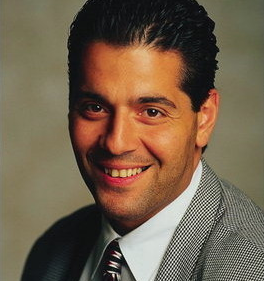Dear Teacher,
I will keep this page short and to the point. Here’s what I have for you today:

In the eBook, you will find multiple great answers to each of the following questions:
- What goals would you set for yourself in this job?
- Is there any kind of student (disability) you would find it difficult to work with?
- Can you name the main problems teachers face nowadays? How do these challenges relate to children with special needs?
- A refugee comes to your class in the middle of the year, a new student. You can see that they have special needs, but they are not diagnosed. What would you do?
- What is your philosophy when it comes to inclusion and segregation? Please share your opinion with us.
- What teaching methods do you prefer and why?
- How would you assess the progress of each individual student? Which assessment tools do you use in your work?
- What would you do if a student was complaining about an assignment you’d given?
- Do you think that all the students should be treated equally, or that there should be an individual approach to every student, in accordance with their abilities and potential?
- Imagine that father of one of your students complained about something which was untrue. How would you react?
- In your opinion, what is the impact of integration on general ed students? How would you deal with this phenomenon?
- A parent calls you because they are worried about their child’s low grades. What would you say to the parent? What actions would you take after such a call?
- How would you handle conflicts between students?
- What do you consider to be the toughest aspect of this job?
- What do you expect from the administrators and other staff in school/district?
- … and ten other tough questions you may face in your interview for a job of Special Ed. Teacher
Check the sample to see how this book can help you:
Sample from the eBook
Q 14: In your opinion, what is the impact of integration on general ed. students? How would you deal with it?
Hint: When they ask this question in an interview, the chances are high that they integrate most students with special needs. Therefore you should focus on the positive impact it has on both groups. Explain how integration helps children with special needs to prepare for real life environment—where there is no segregation, and they will have to compete for jobs and love with everyone else out there.
You should also mention the good impact it has on general ed. students (which was the original question)—fostering right values, respect, and understanding for people who weren’t lucky in life.
You can also mention some challenges, such as mockery, and the impact the integration can have on the progress of general ed. students—since the pace of a lesson will be typically slower, and there will be more distractions during each lesson.
However, this can easily be tackled with the help of assistants, who work with the children with special needs to keep up to the pace of the lesson designed for general ed. students.
Sample answers
– Integration impacts everyone in the class, including the teacher. We have to think about our lesson plans carefully, and, when necessary, work with assistants to ensure that the progress of general ed. students isn’t hindered by the presence of two or three children with special needs. But I believe that it can be done, and that the positives of integration outmatch the negatives.
– In my opinion, education isn’t only about teaching children how to write, read, and count, how physics or the laws of nature work.
It is also about fostering the right values—such as respect and understanding for fellow human beings. And exactly in this do I see the positive impact of integration on general ed. students. Of course, the process isn’t straightforward, and I can imagine that mockery and chicane are present in some classes. But that’s our job, as special ed. teachers, to eliminate these elements, and to get the best out of integration, for everyone involved in the classroom. I will try to achieve it with my work.
Q 15: A parent calls you because they are worried about their child’s low grades. What would you say to the parent? What actions would you take after such a call?
Hint: Good teachers are not afraid to talk to the parents; they accept the responsibility, and they take action—regardless of whether we speak about special or general ed. children. Members of the hiring committee expect you to outline clear steps you would take during, and after the phone call with a worried parent.
You should say that you would encourage them, and ensure them that the entire team of teachers and administrators do their best to help their child to reach their full potential—within their possibilities.
On the other hand, you should also mention that not all expectations of the parents can be met, and each pupil cannot be the best student in a class, especially if limited by certain physical or behavioral condition. Show the interviewers that you are not afraid of this talk, and know what to say to the parents.
Sample answers
– First of all, I consider it a good situation, because it shows that parents are interested in the progress of their child. So I would thank them for calling and praise them for being interested. What I would say afterwards depends on the particular situation.
If the student was under-performing because of their laziness, or bad attitude, I would explain it to the parents and try to work out a plan how we can cooperate in order to achieve better results.
But if they were reaching their potential, and still nearly failing (which can be the case with special needs students) I would simply explain it to them, of course in a most positive way, stressing the strengths and potential of their child in certain areas, and just then mentioning the weaknesses or limitations.
I might talk to the school counselor, or invite the parents for a personal meeting, if the situation was more complicated, or if the matter was sensitive to discuss over the phone. I take such phone calls responsibly, and will do my best to always solve the situation to the satisfaction of parents, while maintaining good reputation of myself, my colleagues, and the school.
End of the sample
These are just two questions. You will find 25 in the eBook, including personal, behavioral, and technical questions. But that’s not all.
To ensure you will get the job, I included in the book six principles you need to understand before you can ace this interview.
Without talking too much about them, let me show you another sample from the book:
Sample no. 2
Principle no. 3: Do not wear pink glasses
Obviously it’s great to have high ideals, and to be optimistic about your role and things you want to achieve with the students with disabilities.
But you should also know the numbers—you should see your role realistically. Unless you do see it, you’ll burn out quickly, you’ll be depressed sooner or later, and you’ll leave your job.
We do not want it to happen. And we won’t hire you unless we are sure that you count with some disappointment.
The statistics are crystal clear: most students with medium and severe disabilities drop out of school, and even if they don’t, they end up unemployable. They end up living with their parents for the rest of their life, or, in a worse case, on the street…
That’s just how it goes, especially in strongly capitalistic countries that do not support the weakest in society—and the United States is the prime example of such an economy.
Now, it doesn’t mean that special education makes no sense, or that we are doing a bad job. We are doing most things right and we try our best. But we live in a society which has certain rules, and we can’t change these rules.
Teachers who have the right idea of this job won’t cry because they see one of their students dropping out of school, or begging on the street.
They will feel satisfaction and happiness once they see that some of their students, or even just one, actually made it out there, got a job, started a family, and found their means of earning a living in our predator economy…
And this is actually the attitude you should show in an interview. Focus on doing your job as well as you can, but do not bother with end results. Try to convince us that setbacks (which necessarily belong to this job) won’t make you sad, or depressed. Show us that you see the job realistically, and are ready for everything it brings.
Unless you manage to do so, we may as well send you home empty-handed.
…………
End of the sample

So that’s it. I do not want to waste your time with lengthy sales pages, and imaginary discounts or fake reviews, just like other people do on their websites, while selling various digital products.
You have read the samples, you know what the eBook is about, and surely you can tell whether it will help you or not.
I sincerely believe it will help you in your interview. It will help you a lot. And you can read it easily in two or three hours, it’s 12,000 words. Only things that truly matter, no secondary content.
Plus, of course, like with everything else we sell here on InterviewPenguin.com, you have a risk free sixty days money back guarantee. If you don’t like this eBook for any reason, or no reason at all, just let me know (email me at glen[at]interviewpenguin[dot]com) within 60 days and we will give you a full refund.
Quick Summary

- Brilliant answers to twenty-five difficult questions you may get in your interview for a special ed. teacher job.
- Published in 2019, latest update: January 2024.
- Several sample answers to each question, so you can choose the one that reflects your values and experience.
- Six principles of acing the special ed. teacher interview, things you simply need to know and understand, in order to make the right impression on the hiring committee.
- Instant download, .PDF format (you can read it on any device (mobile, kindle, PC), and you can easily print it).
- Secure and simple checkout with PayPal, you can pay with your credit/debit card, or with your PayPal account.
- Price: $14, one time payment, no hidden fees or upsell. 60 days risk free money back guarantee. Sold exclusively on InterviewPenguin.com.
- Click the checkout button below to proceed to the payment.
(After the payment you will be directed back to our website, to a protected page, to download your eBook. You will also receive a download link and instructions to your email, just to ensure that you will get the book without waiting, even if the redirect fails.)
(If you can not see an option to pay with your credit/debit card once you click the checkout button, click on “Create an account with PayPal”. You will then see an option to pay with your card (as a PayPal guest), without a need to register an account with PayPal.)
That’s it. Your interview does not have to be stressful, or difficult. You can interview with confidence, and give brilliant answers to all tough questions. Download the guide today, and succeed in your interview for a job of a special education teacher.
Sincerely,
Glen Hughins,
Your personal job interview coach
P.S. Feel free to send me a message if you are still not sure how this guide will help you to get a job. I try my best to answer all messages within twelve hours (glen[at]interviewpenguin[dot]com).
